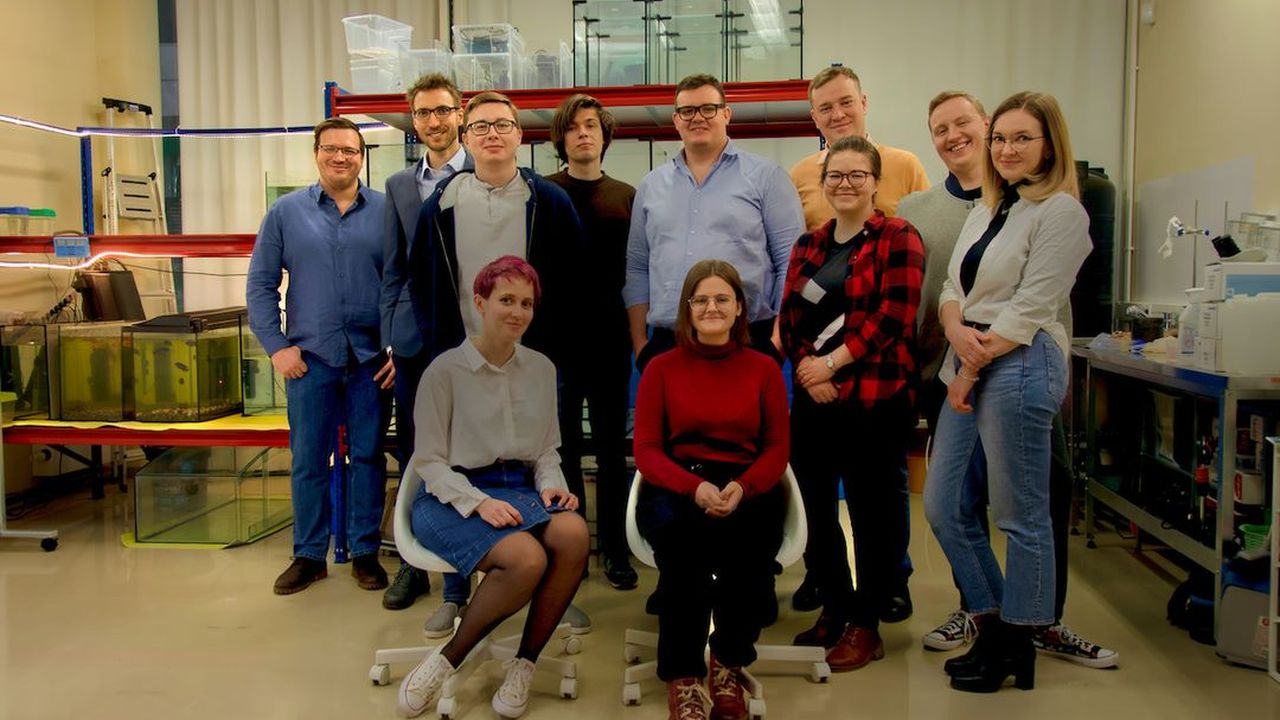Persistent debilitating mental health conditions greatly reduce people's quality of life. Finding the right medication is challenging for those requiring pharmaceutical treatment, and even those that work to treat the symptoms may have adverse side effects.
But now a Berlin startup has found the missing ingredient, which comes from a humble ingredient — milk!
Spun out of Lactocore, Lactabico develops new medicines derived from milk peptides to treat mental and metabolic diseases.
I spoke to Anton Malyshev, CEO and founder, to learn more.
The power of peptides
Peptides from cow (and human breast) milk are special compounds that exist between small molecules and proteins with different biochemical and therapeutic properties. They act like hormones or drugs by binding to specific receptors on certain cells, triggering physiological responses in the body.
Peptides can treat mental health conditions, control high blood pressure, regulate cell growth, reduce cholesterol levels, and help manage appetite and metabolism.
The company has a team of biologists, biochemists and specialists in computational research and developed an R&D platform called Reptide that readily reduces the costs of drug discovery.
AI in action
Reptide uses AI to generate lists of the most promising peptides based on the physics of non-covalent, intermolecular, protein-peptide interactions and gain an understanding of the binding pockets and structural features of target proteins.
Using its proprietary computational tools, the team has generated a portfolio of promising milk peptides, two of which have already demonstrated proof-of-concept in late-stage preclinical studies:
LCGA-17 demonstrates both rapid and long-lasting anxiolytic and antidepressant activity without adverse effects.
CHM-273 mimics the physiology of digestive system hormones - decreasing weight and appetite and normalising glucose metabolism.
The company currently has three patent applications related to peptide therapeutic agents.
A new way of mental health treatment
Malyshev studied neuroscience for a PhD, focusing on mammalian behaviour, physiology, and psychiatric disorders. It exposed an opportunity to develop healthier and safer drugs to treat pervasive mental health conditions like post-traumatic stress disorder, depression, and anxiety.
He explained: "There are huge patient populations with psychiatric disorders. However, many medications, unfortunately, have debilitating effects like addiction toxicity and withdrawal effects.
He cites the example of benzodiazepines, prescribed for their rapid onset effect in treating anxiety.
"Addiction problems can occur if taken for a month, so our goal is to try to replace benzos with drugs that lack the typical side effects. "
Furthermore, doctors frequently prescribe medications like SSRIs and SNRIs for mental health conditions. However, these drugs take a while to start showing any effect on mood, and patients often have to wait for several weeks and try different medications to find the right one.
This means there's scope for creating new drugs that either supplement, combine ingredients, or replace existing medications.
However, the approval process for clinical trials and eventual market entry is slow in conservative psychiatric pharmacology.
Thus, the company also sees a potential alternative with a faster time to market – veterinary medication.
Malyshev explains that milk peptides can be helpful in treating dogs that suffer from separation or noise anxiety.
"Regulation in animal health is much easier, so we are trying to forge partnerships with veterinary companies because, unfortunately, anxiety is not only a human problem. "
The transition from lab to market
Many companies struggle to make the shift from the laboratory to commercialisation.
Malyshev cites the company's dedication to purpose as a huge motivation — "we are making fundamental discoveries with the end result benefiting and improving patient lives."
He also cites the importance of being exposed to different perspectives, especially as scientific researchers can often end up in their own bubble:
"You need to collaborate early, not only with your scientific peers but also your team - it's essential to have different perspectives and collaborate early — not only with your scientific peers but also with marketing and business development-orientated people because they greatly help you navigate your development plans.
He also rates accelerator programs and incubators "because they can greatly improve your credibility and offer visibility through their networks and different partnership programmes."
The company is fundraising and aims to continue clinical trials and improve its platform runtime. It also hopes to initiate partnerships with academic researchers and pharmaceutical groups.



Would you like to write the first comment?
Login to post comments